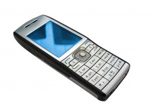 In Japan novels are serialized for cell phone delivery and published as dead tree editions only after they are hits. John Rice has a great post on on this at his Educational Games Research blog.
In Japan novels are serialized for cell phone delivery and published as dead tree editions only after they are hits. John Rice has a great post on on this at his Educational Games Research blog.
While this works because of Japan’s rather unique commuting environment the central point that any reading helps build fluency is well taken. Here is the money quote:
“It boils down to literacy events in the life of a child. The exposure to text, in whatever venue, increases the reading and writing skills of children. If children read a book, a comic book, or the story line in a videogame, they are reading. And that makes all the difference.”
This novel approach hits on two interesting themes. First, it takes advantage of the new format rather than trying to shoehorn the old way of doing things into the new platform. Publishers have worked hard to recreate the book experience on-line with very limited success. I would argue that this innovation is the reverse – making an on-line experience into a book, which is why it works.
 Second, the Japanese are not fighting the new tools but finding ways to use them effectively. Cell phones can be disruptive in schools and there are definitely places they don’t belong. On the other hand the blanket prohibitions that many schools have in place show that they haven’t been provided with products like this that take advantage of the new technology for learning.
Second, the Japanese are not fighting the new tools but finding ways to use them effectively. Cell phones can be disruptive in schools and there are definitely places they don’t belong. On the other hand the blanket prohibitions that many schools have in place show that they haven’t been provided with products like this that take advantage of the new technology for learning.
Products like Amazon’s Kindle and Sony’s eReader are interesting and may be better platforms for delivering educational content but they cost almost as much as a laptop. On the other hand, most kids have access to a cell phone today at no cost to the schools at all.
Does exposure to classics matter? Of course it does. The quality of what you read helps your higher order thinking by exposing you to new ideas and concepts. But why can’t a classic can’t come out on a cell phone first? Dickens serialized most of his work in magazines, the broadband distribution network of his day.
It would be interesting to see an ed-tech company partner with a publisher to reach out to students here in the US with something similar.
 The Education Business Blog
The Education Business Blog

